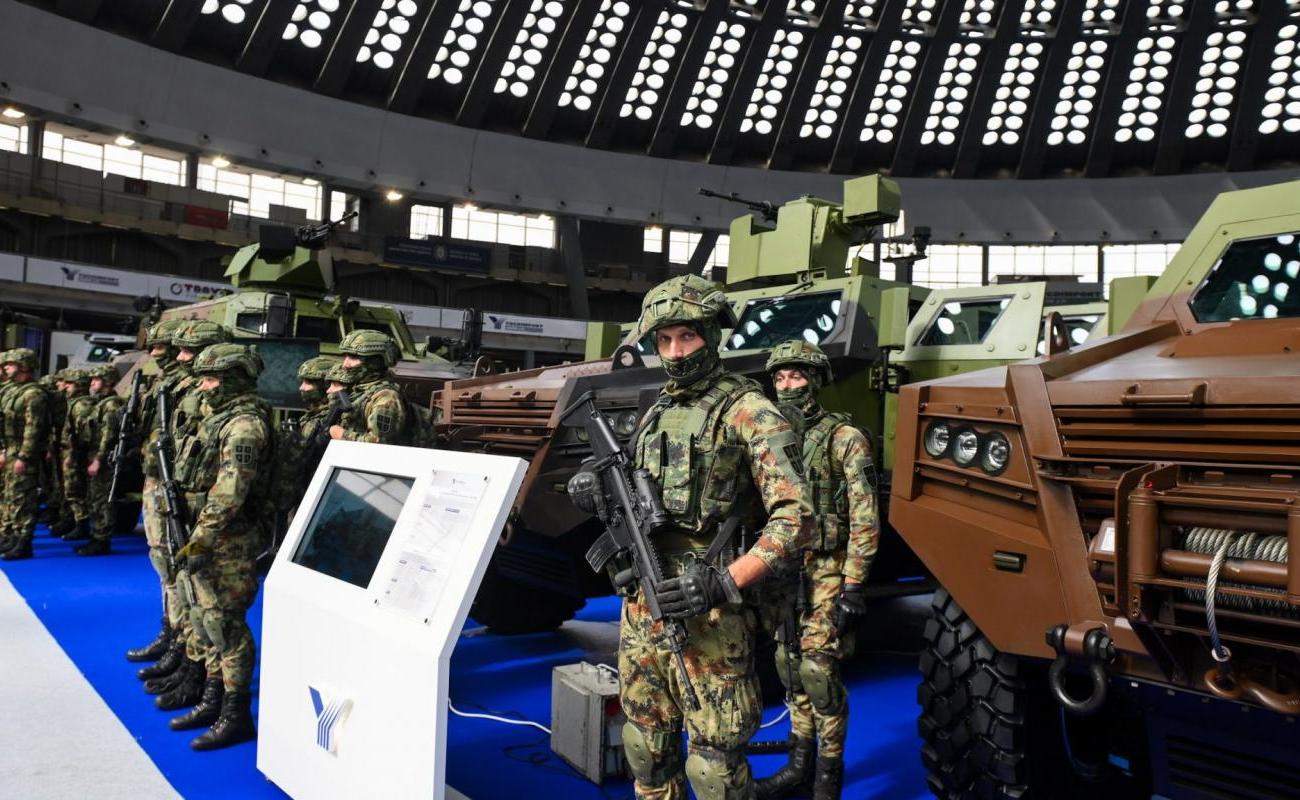Why Russia Tolerates Serbia Sending Arms to Ukraine

Vucic’s achievement is no small feat. Since the start of the invasion of Ukraine, Moscow has sacrificed old alliances and partnerships for the sake of military victory over Kyiv.
Russia abandoned its ally Armenia to face Azerbaijan rather than distract forces from the Ukrainian front. Its longstanding partnership with Israel was scrapped in exchange for Iranian drones. South Korea dragged its feet on joining anti-Russian sanctions – but Moscow sacrificed that good relationship in a heartbeat, opting for ammunition from North Korea instead.
Belgrade has far less to offer Moscow than South Korea or Israel did, while its contribution to Ukraine’s war effort has turned out to be quite significant. To be sure, Serbia’s arms deliveries were commercial and done indirectly through NATO states, but in terms of sheer value, they amount to greater assistance than that provided by any of the three Baltic states or by such outspoken supporters of Kyiv as Spain or Croatia.
Serbian shells are directly undermining Russia’s efforts to exhaust Ukraine’s stockpiles, not to mention killing Russian soldiers. Vucic himself confirmed the scale of the supplies while nonchalantly stating that the end user’s identity was not his concern – as if Czechia, for example, might be buying shells right now for anyone other than Ukraine.
Even then, Russia did not react. Asked about the matter, Kremlin spokesperson Dmitry Peskov muttered about discussing the issue with “our Serbian friends”. Foreign Ministry spokesperson Maria Zakharova didn’t even mention it in her regular diatribes against Russia’s real and imaginary enemies.
Russian Deputy Foreign Minister Alexander Grushko also kept silent, in public at least, about the arms-to-Ukraine issue during his visit to Belgrade on July 1-2. The Russian embassy in Belgrade even made an effort to refute media speculation that any controversies had arisen during Grushko’s meeting with Serbian officials.
‘A dear and reliable partner’
Moscow was not so dumbfounded by the news that it didn’t know how to react. Serbia’s arms deliveries to Ukraine have been an open secret at least since early 2023, when the first leaks were published. Moscow then vowed to look into the matter, yet continues to this day to praise Vucic as a dear friend and reliable partner.
Russia’s uncharacteristic restraint is the result of the way Vucic manages Serbia’s relations with Russia. Hailing himself from the murky world of post-communist politics, the Serbian leader knows well that Russian policies are not shaped by abstract national interests but by the constellation of its dignitaries’ personal agendas.
So, instead of trying to endear oneself to Russia as a whole, it’s far more expedient to cultivate friends, and silence detractors, inside the regime.
Even the war in Ukraine and Russia’s ensuing isolation from Europe have failed to halt Vucic’s networking in Moscow. The optics are too bad now for Vucic to meet or even call Putin, but personal interactions between the two countries’ leaderships still abound. In the absence of Vucic, his loyal henchman, Aleksandar Vulin, now knocks at various doors in Moscow to keep Belgrade in the right people’s favour.
Vulin’s busy networking in Moscow
Over his consecutive tenures as defence minister, interior minister, and head of Serbia’s main intelligence service, the BIA, Vulin has developed such a close rapport with Russia’s security heads that it landed him on the US sanctions list in July 2023, leading to his temporary dismissal in November.
He spent the next five months as a private citizen, but the lack of official status didn’t prevent him from making as many as three trips to Russia over this period, when he met then Security Council secretary Nikolai Patrushev (twice), the head of the SVR foreign intelligence service Sergei Naryshkin (twice), and the Federal Security Service, FSB head, Alexander Bortnikov.
On Vulin’s return to the Serbian government in May this year, his first visit in his new post as deputy prime minister for cooperation with the BRICS countries was, predictably, to Moscow. There he met Russia’s new Security Council secretary, Sergei Shoigu, Interior Minister Vladimir Kolokoltsev and other top security and foreign policy officials.
Regardless of Vulin’s formal duties, his mission remains the same: to establish personal ties with Russia’s leading siloviki, shower them in the crudest flattery possible and convince them that Vucic is the best ally Moscow could possibly have in the Balkans.
The narrative is that, yes, at times Belgrade has to take anti-Russian steps, but it is the West that forces them on Serbia, in order to publicise them later and sour the eternal Russian-Serbian friendship. Moscow shouldn’t fall into this trap.
And Russia complies. Not just because of Belgrade’s flattery but also because it understands that Vulin has a point. Vucic is indeed the best available option to sustain the semblance of Russian influence in the Balkans. He has invested so much in cultivating pro-Russian sentiment that he cannot now wean himself off this PR dependency easily, as it could undermine his domestic support base.
Without Vucic’s nationalist regime, its propaganda machine, and appendages in neighbouring countries, the whole shady edifice known as ‘Russia in the Balkans’ may unravel, revealing how meagre Moscow’s real leverage in the region is.
As a result, the Kremlin prefers to stick with the devil it knows. It even reprimands its own subordinates for displeasing Vucic. The current silence of the usually outspoken Zakharova stems from a 2020 episode when she and even Putin himself had to apologise to Vucic for her “inappropriate” jokes about his visit to Washington.
This time, a hapless Russian propagandist, Sergei Mardan, had to offer a public apology for lashing out at Vucic over the Serbian arms deliveries on the news. The myth of the eternal Russia-Serbia friendship remains of supreme value – and neither Western nor domestic ‘provocations’ must be allowed to taint it.
Maksim Samorukov is a fellow at Carnegie Russia Eurasia Centre in Berlin.
The opinions expressed are those of the author only and do not necessarily reflect the views of BIRN.
